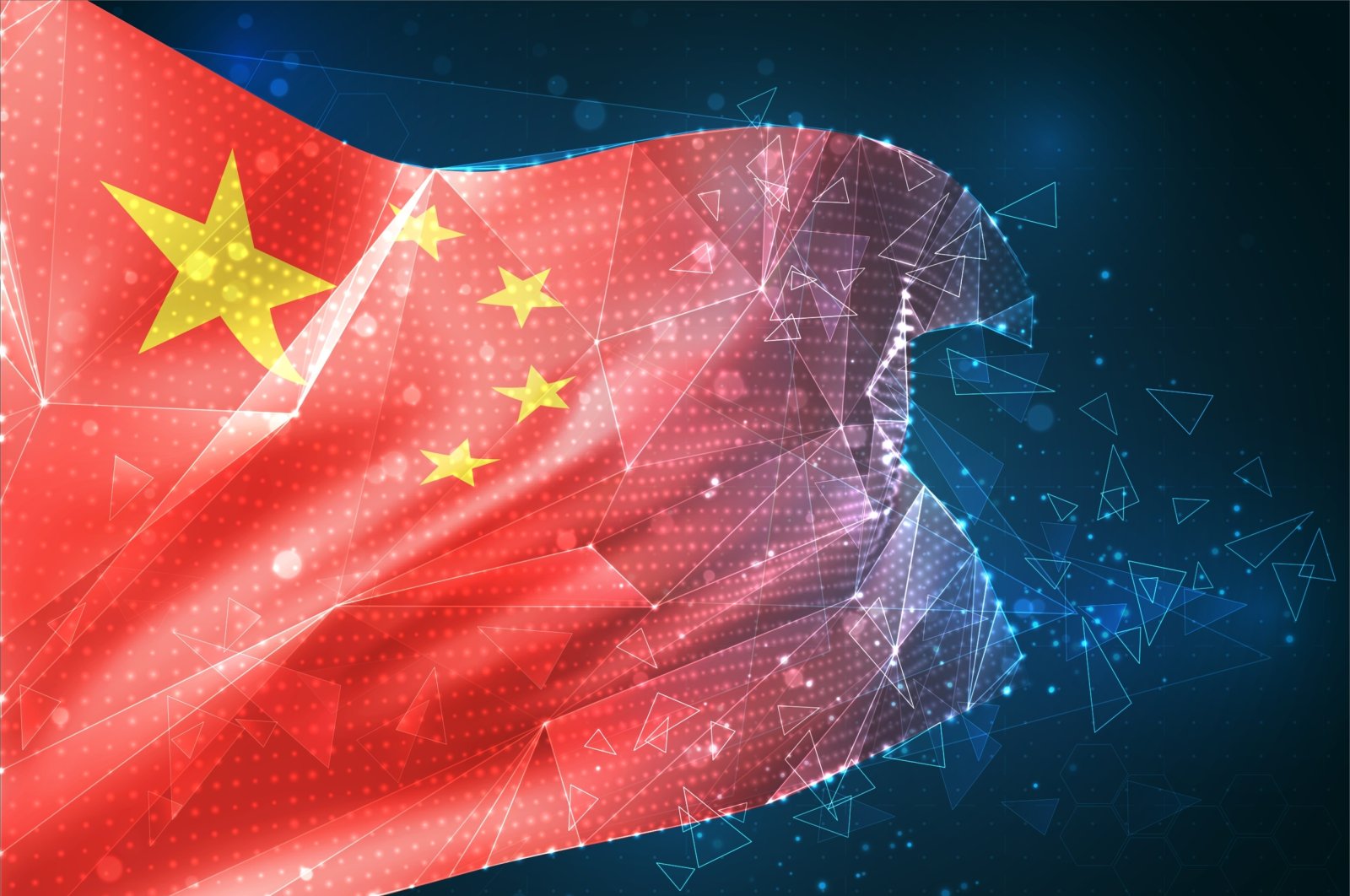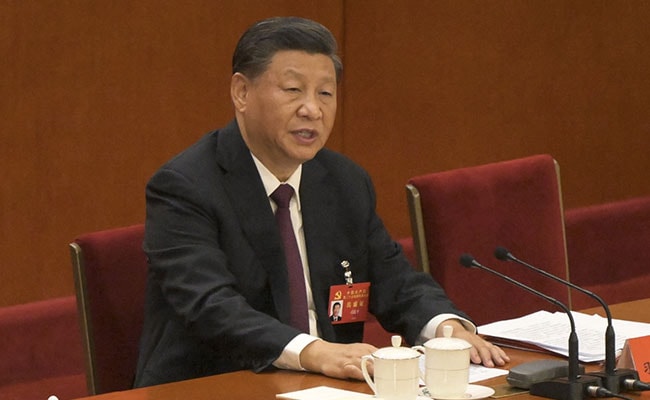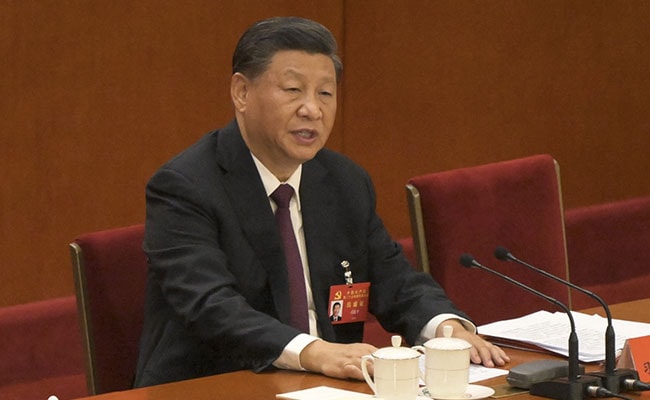beijingwalker
ELITE MEMBER

- Joined
- Nov 4, 2011
- Messages
- 65,191
- Reaction score
- -55
- Country
- Location
Soft power diplomacy between China and the Arab world,China uses religious soft to boost relationship with the Arab world
BY FAZZUR RAHMAN SIDDIQUI
OCT 08, 2022 - 12:05 AM GMT+3‘Since the launch of the Belt and Road Initiative in 2013, China has used religious soft power more rigorously to boost its relationship with the Arab world’
One cannot deny the fact that China’s role in the Arab world has grown recently in all aspects of the bilateral relationship, including economic and diplomatic relations as well as on the military and strategic fronts. But one of the major aspects of this relationship that has gone unnoticed or is rather obscure is the growing soft power diplomacy between the two regions, which has proven to be a catalyst along with a burgeoning economic and political relationship.
The use of soft power has been crucial in the emergence of China as a major global power. To strengthen ties further, both sides have started to pursue soft power diplomacy, and China seems to be the more ardent believer in this to take this bilateral relationship to new heights. China often highlights religious, cultural, linguistic, and culinary components of diplomacy in its relationships.
Many aspects of the Belt and Road Initiative (BRI) have been directly linked to cultural and people-to-people outreach and a new project has been initiated to translate hundreds of Chinese books into Arabic and vice versa. Different cities of China are flooded with Arabic professionals and one such commercial city is Yiwu, where there are around 1,000 Arabic translators engaged in different multination outlets. Today the city of Yiwu has hundreds of Arabic-learning institutions with more than 10,000 students enrolled to learn Arabic. One can see thousands of sites offering jobs to Arabic translators in several Chinese export companies.
Al-Jazeera's bureau office in Beijing once reported that unlike in Tehran or Ankara, they face no difficulty in finding fluent Arabic speakers. Likewise, Al-Jazeera occasionally airs live interviews of Chinese officials from the West Asia division in the Chinese Foreign Ministry, which is very much similar to the Hard Talk show aired on BBC.
Xinhua in Arab world
Xinhua, a Chinese state news agency, has a bureau in almost every Arab capital and a bureau headquarters based in Cairo. Likewise, Chinese media agencies run several blogs on the Arab World. For the first time, the Arab world received attention in China when the 2006 Lebanon-Israel war became the most talked about issue for Chinese bloggers. The opening of the Arabic department at the Foreign Language University in Beijing is another testimony of the growing significance of soft power diplomacy in the arena of the China-Arab world bilateral relationship. This is not only China showing all enthusiasm to promote the Arabic language in its land but the Arab world is equally keen on it.Saudi Arabia has decided to introduce the Chinese language in primary and secondary level education and this decision was made following the visit of Saudi Arabia’s crown prince to China in February 2019. Recently, China sent 40 students to different Arab countries such as Saudi Arabia, Kuwait and Egypt and some of them participated in Quran recitation completion held in Saudi Arabia.
The philosophy of Confucianism is also being employed as a soft power element to bring these two entities closer. Many in China have equated Islam and Confucianism in their content and philosophy. Today, there are 12 Confucius institutions in the region and Morocco has three such institutions, followed by Egypt, the United Arab Emirates (UAE) and Jordan with two each, and one in Lebanon, Sudan and Bahrain. Confucius Institutes in Morocco, Egypt, and Jordan also have study abroad programs that send their students to China and China has at least one study abroad agency that recruits Arab students to study in different Chinese universities.
The Dubai Confucius Institute in the United Arab Emirates has the largest number of students and this suggests that growing economic ties between the two countries are forcing them to know not only each other’s politics and geography but also history, religion and culture as well. Lebanon was the first country in the Arab region to establish a center for the Chinese language in its St. Joseph University in Beirut with the joint collaboration of the Chinese government and the Confucius Institute. The Chinese government has also established a series of Islamic associations that function like mouthpieces of the ruling Chinese Communist Party (CCP). Today, these associations are employed to craft a new narrative for the Arab audience and to discredit the stories about the Chinese policies of repression and assimilation against the Turkic-Muslim Uyghur minority in the Xinjiang region. These associations are engaged in imparting socialist and Chinese cultural values in the Chinese mosques for the prayer holders.
Hajj is another element of public diplomacy or the soft power approach to reach out to the larger Arab World and even this part is handled by the Islamic Association. During the hajj, senior officials of the association hold meetings with the higher officials in the Kingdom of Saudi Arabia to rebuke the anti-Chinese campaign, particularly with regard to the hostile situation for Uyghurs in the country. As part of the projection of its soft power diplomacy, China from time to time hosts different kinds of exhibitions highlighting Arab food and calligraphy. In the town of Ningxia, an Islamic food expo and Arabic calligraphy exhibition were recently held and for many, Hui (ingenious Muslims) culture was quite appealing for the Arab expatriates, tourists and traders.
Over the decades, more than a hundred restaurants serving Arab cuisine have sprung up in the commercial town of Yiwu and some of the restaurants showcase belly dancing. Many restaurants serve Lebanese food and many employ Chinese staff. One of the most entertaining examples of Islam’s appeal in Chinese popular culture is the enormous affection for Afanti – the legendary Sufi folk hero who is also known as “Nasreddin Hodja” in Turkish and Persian or “Goha” in Arabic.
Religious soft power
Since the launch of the BRI in 2013, China has used religious soft power more rigorously to boost its relationship with the Arab world. One can see the special sections on different matchmaking websites like "Love Habibi" for Arab Chinese. One glance at their profile makes it clear that they have recently migrated to China, mainly from Iraq, Saudi Arabia, UAE and Lebanon. There are many Arabs marrying in China and settling there with their Chinese spouses.In recent years, China has witnessed the blooming of thousands of mosques built under the auspices of the Muslim World League. A brand new Sunni mosque, a blend of Gulf and Central Asian architecture, has been built in the town of Yiwu, which is attended by around 7,000 Muslims for Friday prayer. A smaller Sunni Mosque in the Futian market in Yiwu caters to pious traders and a Hui imam gives sermons in a mix of Arabic and Mandarin. The prayer time clock in the center of Yiwu shows that this Chinese city is firmly on the spiritual map of Arab Muslims. A number of private Arabic or Sino-Arabic schools have opened all over the country. There has been substantial growth in Muslim/Arabic classes in the country. They often go by names like the Sino-Arabic School, the Muslim Culture School, the Arabic School, The Right Path School, the Muslim Light School of Arabic, the School of Hui Culture, etc. The government in China has founded many Quran institutes with the help of the Department of Religious Affairs and the Islamic Association.
One can see that this is not merely for trade, diplomacy, politics or strategy, which are all defining the new template of the China-Arab relationship, but soft power has equally emerged as an indissoluble element of the new burgeoning relationship between the two.

Soft power diplomacy between China and the Arab world | Opinion
‘Since the launch of the Belt and Road Initiative in 2013, China has used religious soft power more rigorously to boost its relationship with the Arab...





